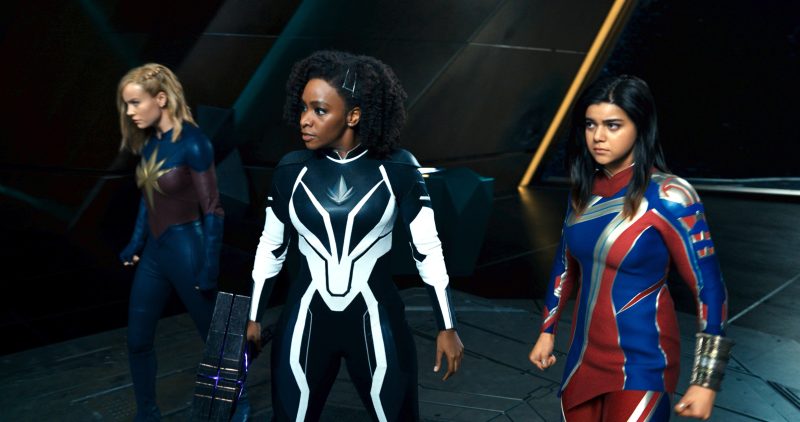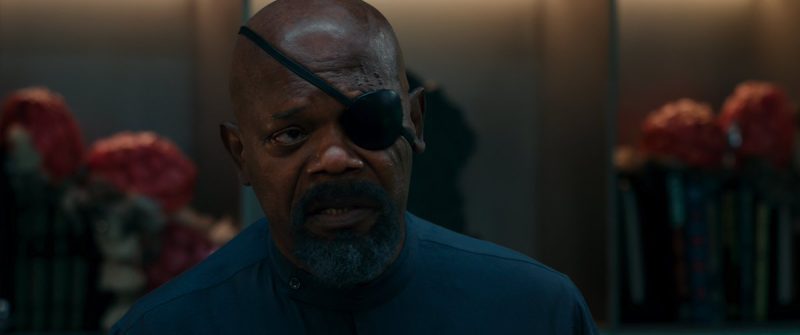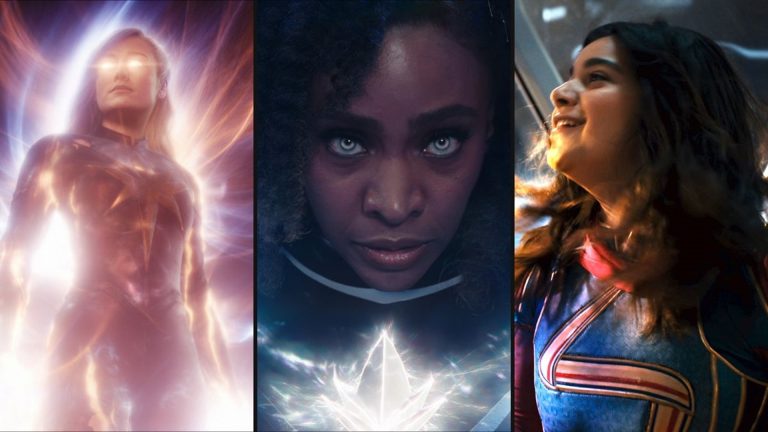The release of The Marvels has turned into a negative sign for the Marvel Cinematic Universe, marking it as a turning point (albeit an unfortunate one) in the multi-billion-dollar cinematic franchise’s history. It’s now the lowest-grossing installment in the MCU, with its final box office performance falling well short of industry standards. This outcome has not only shocked fans and analysts but has also raised questions about the future direction of the MCU, especially the trio of female leads in The Marvels.
After four weeks in theaters, The Marvels amassed only $80 million domestically and $197 million globally, falling short of the $200 million mark, a figure significantly lower than anticipated for a franchise known for its blockbuster hits. This outcome is particularly startling given the commercial success that the Marvel brand has historically enjoyed, with the franchise amassing $29.8 billion globally across 33 films. Despite featuring popular characters like Brie Larson’s Captain Marvel, Teyonah Parris’s Monica Rambeau, and Iman Vellani’s Ms. Marvel, the film struggled to captivate audiences, leading to its decline at the box office.
The underperformance of The Marvels could be attributed to several different factors. The film faced the challenge of following up on its predecessor, 2019’s Captain Marvel, which benefitted from its release between two of the highest-grossing movies of all time, Avengers: Infinity War and Avengers: Endgame. However, The Marvels didn’t enjoy a similar momentum and struggled to match the opening weekend figures of Captain Marvel. Instead, it followed up some of the worst-performing MCU films and shows, including Ant-Man and the Wasp: Quantumania and Secret Invasion. Finally, it doesn’t help that it was met with mixed reviews from critics as well as audiences alike – it received a CinemaScore of B-, indicating that the film didn’t resonate well with audiences.

The lackluster performance of The Marvels may reflect a broader trend of shifting consumer preferences and weariness towards superhero films. The film’s poor reception isn’t solely a reflection of its quality but it’s also indicative of change in audience habits and an over-dependence on extensive franchise knowledge for casual viewers. This sentiment is now exacerbated by the saturation of superhero content, with the MCU releasing multiple films and Disney+ TV series within the year.
If it’s any consolation, Disney is well aware of its shortcomings, focusing its efforts towards a single big film next year – Deadpool 3. With Echo, it’s experimenting with something different as well, a more mature brand of comic book shows ahead of the release of Daredevil: Born Again, which recently enjoyed a positive development. The hope is that these two projects will help lead the way for a brighter future of the MCU as it reportedly pivots from Jonathan Majors’ Kang with the help of the likes of Pedro Pascal and, presumably, Mads Mikkelsen.
Nevertheless, the implications of The Marvels’ underperformance remain significant for the MCU. With the film’s failure to reach even the box office figures of X-Men: Dark Phoenix, comparisons are being drawn to the decline of many other franchises in the past. It’s a situation that has led to concerns about the viability of continuing certain storylines and the characters in the MCU. Many are questioning whether we’ll see Captain Marvel, Monica Rambeau, and/or Ms. Marvel in a prominent role in the MCU again or if they’ll be relegated to becoming side characters for the foreseeable future.

Disney’s response to the film’s performance suggests a recognition of the need for a more realistic assessment of their films’ potential. CEO Bob Iger’s acknowledgment of the high standards set by previous billion-dollar hits indicates an awareness of the changing dynamics in the film industry and the need to adapt to these shifts.
As the MCU looks to the future, it faces the challenge of retooling its strategy to regain the audience’s trust and interest. The task now for Marvel Studios is to navigate these changes and find ways to reinvigorate the franchise while finding a way to maintain the essence of what made it a cultural phenomenon.

